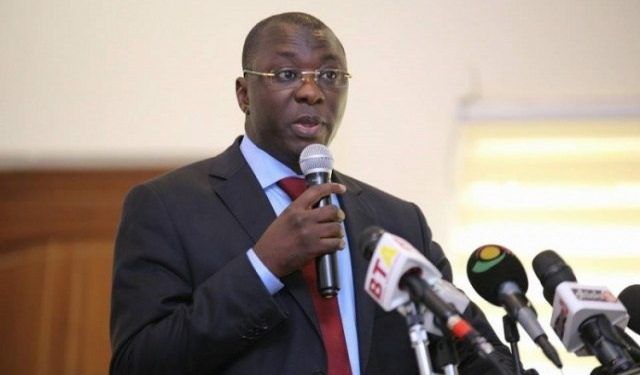The Ghanaian political landscape has witnessed a contentious debate surrounding recent tax policies implemented by the National Democratic Congress (NDC) government. Former Finance Minister, Dr. Mohammed Amin Adam, has sharply criticized the NDC administration for what he perceives as a deceptive maneuver involving the removal of certain taxes, only to subsequently impose a significantly higher levy on petroleum products. This new levy aims to generate GHS5.7 billion in revenue, dwarfing the combined value of the abolished taxes, which included the e-levy, betting tax, and emission levy. Dr. Amin Adam argues that this approach effectively negates any relief provided by the earlier tax cuts and ultimately burdens Ghanaians with a heavier financial strain.
The core of the controversy lies in the contrasting narratives presented by the two major political factions. The NDC government, under the leadership of President Mahama, justified the initial tax removals as a measure to alleviate the economic hardships faced by citizens, attributing these difficulties to policies enacted by the preceding New Patriotic Party (NPP) government. Finance Minister Dr. Cassiel Ato Forson championed the abolition of the taxes as a step towards easing the burden on Ghanaians. However, Dr. Amin Adam contends that this gesture was merely a tactical ploy to garner public favor, masking the impending introduction of the substantial fuel levy.
Dr. Amin Adam’s critique hinges on the significant disparity between the financial impact of the abolished taxes and the projected revenue from the new petroleum levy. He points out that the combined revenue generated by the scrapped taxes amounted to less than GHS5 billion, while the new levy aims to collect GHS5.7 billion. This discrepancy, he argues, exposes the NDC’s strategy as a “bait-and-switch” tactic, where a seemingly beneficial move is ultimately overshadowed by a more substantial financial burden imposed on the populace. The former Finance Minister draws a vivid analogy, depicting the government as giving with one hand while simultaneously taking back more – plus whatever was already in the citizen’s pocket – with the other.
The introduction of the GHS1 fuel levy has ignited a fierce debate regarding its impact on the Ghanaian economy. Proponents argue that the increased revenue is necessary to fund crucial development projects and address pressing economic challenges. They maintain that the levy represents a necessary step towards fiscal stability and long-term economic growth. However, critics counter that the levy disproportionately affects lower-income households, who are more reliant on petroleum products for transportation and other essential needs. They express concerns about the potential inflationary effects of the increased fuel prices, which could erode the purchasing power of citizens and exacerbate existing economic hardships.
The debate surrounding the fuel levy underscores the inherent complexities of fiscal policy and the challenging task of balancing competing economic priorities. The government faces the difficult task of generating sufficient revenue to fund essential services while simultaneously striving to minimize the burden on citizens, particularly vulnerable populations. Finding the optimal balance between revenue generation and economic welfare remains a constant challenge for policymakers. The ongoing debate highlights the importance of transparency and open dialogue in the formulation and implementation of fiscal policies. It underscores the need for a comprehensive assessment of the potential economic and social consequences of such policies, ensuring that their benefits outweigh the costs and that they contribute to sustainable and inclusive economic growth.
The controversy surrounding the fuel levy serves as a microcosm of the broader political and economic discourse in Ghana. It reflects the ongoing tension between competing political ideologies and the divergent approaches to economic management. The debate also underscores the importance of public engagement in policy discussions and the need for policymakers to be responsive to the concerns and aspirations of the citizens they represent. The outcome of this ongoing debate will significantly shape the economic landscape of Ghana and influence the trajectory of its future development. It is imperative that all stakeholders engage in constructive dialogue to forge a path towards sustainable and equitable economic progress for all Ghanaians.


